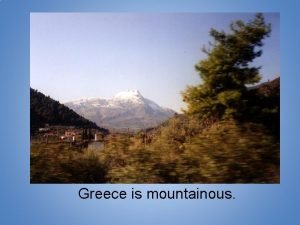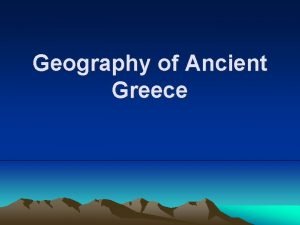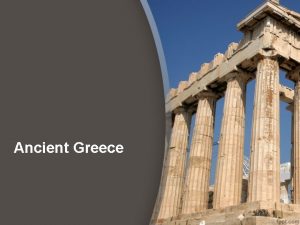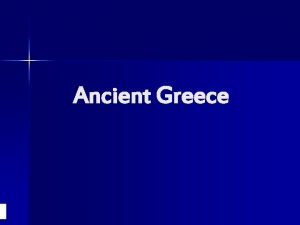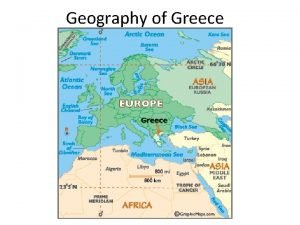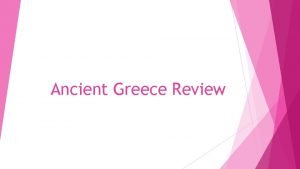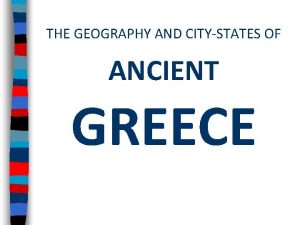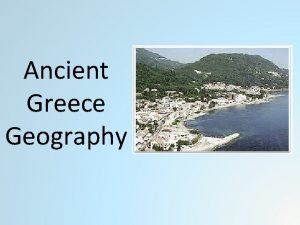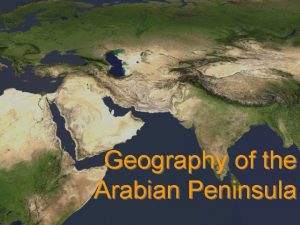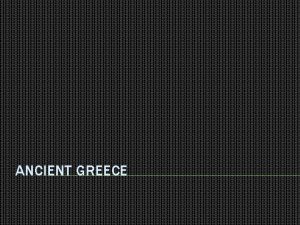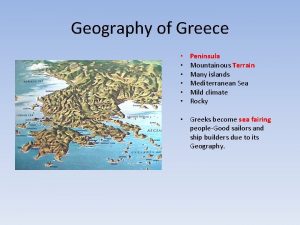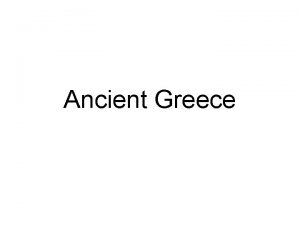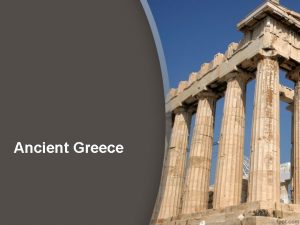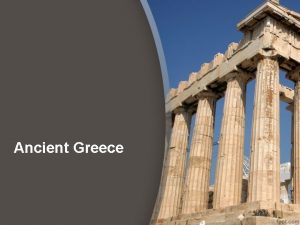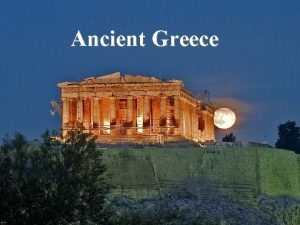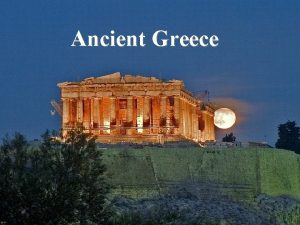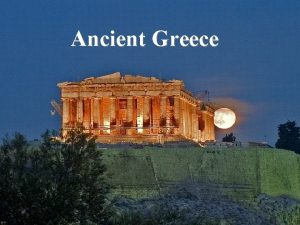Ancient Greece Geography Mountainous Peninsula Over 300 islands












- Slides: 12

Ancient Greece

Geography • Mountainous Peninsula – Over 300 islands – Around 170 are inhabited today – Surrounded by the Aegean, Mediterranean, and Ionian Seas




The Sea • Shaped Greek civilization – Never further than 85 miles from the coast • Greeks became skilled sailors – Used the sea as we use highways – Linked them with other societies – Trade became important • Greece lacked natural resources

The Land • Rugged – Mountain chains divided Greece into different regions • Because of this, Greece was difficult to unite • As a result… • Independent city-states developed like: – Athens and Sparta – Different governments developed to manage those city-states

Types of Governments found in ancient Greece

Monarchy The ruling power is in the hands of a single person. • Leader— “The King” – – Lived in a palace in the capital Made laws for the city-state Pledged protection to his subjects (people) Inherited power from his father • The King’s Subjects – Paid taxes to the king – Followed the king’s laws

Oligarchy most common type of ancient Greek government The ruling power is in the hands of a few leaders. • The Leaders…Oligarchs – – A few selected, wealthy individuals Led luxurious lives Enforced their rule with military support Had more privileges than the citizens • The Citizens – Were protected by the Oligarchs – Gave up their political rights • Had no say in government

Tyranny The ruling power is in the hands of an individual who has seized control…takes power for themselves. • Ruler— “Tyrant” – Usually a military officer– Backed by the middle class who wanted as much power as the wealthy aristocrats – Reformed laws – Aided the poor – Gave other citizens a voice in government – Later on…grew greedy and ruled harshly • The Citizens – Initially received more rights – Later on…rights were restricted

Democracy The ruling power is in the hands of all the people. • Developed in the city-state of Athens The Assembly • Open to all 30, 000 Athenian citizens – Made laws for Athens Council of 500 • Responsible for the day-to-day running of Athens • Enforced the Assembly’s laws All government workers were paid for their services.
 Mountainous peninsula
Mountainous peninsula Ancient greece landforms
Ancient greece landforms Balkan peninsula on ancient greece map
Balkan peninsula on ancient greece map Why was cyrus considered a fair ruler
Why was cyrus considered a fair ruler Why did tyrants fall out of favor with the greeks?
Why did tyrants fall out of favor with the greeks? Ancient greece peninsula
Ancient greece peninsula Greece is located on what peninsula
Greece is located on what peninsula Ancient greece map balkan peninsula
Ancient greece map balkan peninsula Geography of greece
Geography of greece Ancient greece map
Ancient greece map Describe the geography of ancient greece
Describe the geography of ancient greece Geography of ancient greece
Geography of ancient greece Geography of the arabian peninsula
Geography of the arabian peninsula
